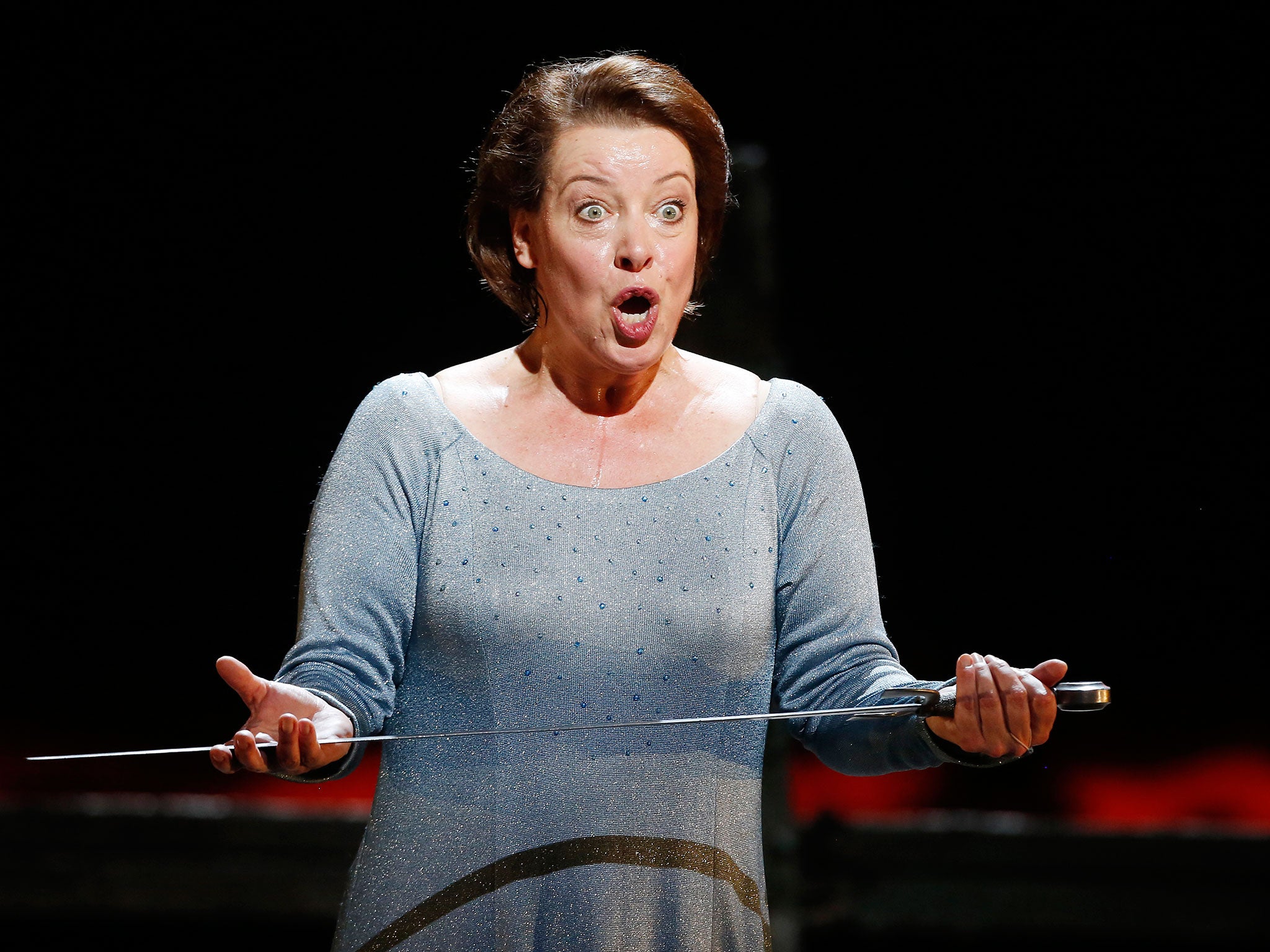A role worth dying for
Swedish soprano Nina Stemme tells Jessica Duchen that playing the tragic Salome is one of her biggest challenges yet

Nina Stemme’s shelves may buckle under the weight of the accolades she has received in recent years. Swedish Woman of the Year, the Opera News Award, the City of Stockholm Honorary Prize, Gramophone awards and many more have all winged their way to her. And no wonder, for Stemme, 51, has become probably the greatest Wagnerian soprano of our day, rather to her own surprise.
Now she is back in London to sing at the Proms. On 30 August she takes the title role in Richard Strauss’s opera Salome, with the Orchestra of the Deutsche Oper Berlin conducted by Donald Runnicles – a concert prime among events marking the 150th anniversary of the composer’s birth.
Stemme can hold her audience rapt with her all-giving stage presence and a voice that boasts a focused, sonic beauty virtually limitless in colour and nuance, yet extraordinarily pure.
As Brünnhilde in Wagner’s Ring cycle at last summer’s Proms, conducted by Daniel Barenboim, she had London at her feet. One critic commented that her final scene in Götterdämmerung “flooded out into the auditorium in an unending stream of perfection. No one who heard it will ever forget it.” How did it feel to her? “I had to use my breath, but it was breathtaking,” she quips. “But I don’t have words to describe it, because it is music, and no expression is imaginative enough.”
Offstage, nothing about Stemme hints at the blazing Valkyrie she can become in performance. Her feet are firmly planted on solid Scandinavian earth. She prioritises, when possible, time at home with her family – her husband, Bengt Gomér, is a stage designer and they have three children, the eldest now 20 – and she appreciates her ever-increasing fame with humility.
“I feel extremely happy, proud, humbled and honoured,” she says of all those awards. “Sweden is a great exporter of hip-hop, rap, rock and pop, but we do have a few good opera singers too! I’m just glad that what we do has a chance to be recognised. But that’s not why I sing. I am driven by something else.”
Stemme took some time to settle on her vocation. At first she balanced studies in business and economics in her native Stockholm, working in her parents’ business consultancy, playing the viola and developing her voice at the Stockholm Operastudio. It was only at 27, after making her debut as Cherubino in Mozart’s Le Nozze di Figaro, that she decided to commit to singing and auditioned for the University College of Opera in Stockholm. After that, it was all or nothing.
Winning Plácido Domingo’s first Operalia competition in 1993 launched her in earnest, but the ensuing journey has proved far bigger than she anticipated. Even when she first sang Wagner’s Tristan und Isolde, at Glyndebourne in 2003, she was convinced that she would never have the right voice for Brünnhilde.
“I absolutely believed it at the time,” Stemme laughs. “But then my voice grew and there’s nothing you can do about it. You just have to get on the train and travel with it, trying to develop and sustain your technique. For me, it’s a dream situation, but it’s not something I ever aimed for. I always promised myself that I would be happy with the roles I was singing and that I would try to deepen my interpretations as much as possible.” That principle has not changed, though the roles have.
Next season sees her return as Isolde at the Royal Opera House in December (a revival of Christof Loy’s Bergmanesque production with revised design), plus appearances around the world in Puccini’s La Fanciulla del West and Turandot, Leonora in Beethoven’s Fidelio and her debut as Strauss’s Elektra.
Those are some of opera’s most powerful female characters – but the intuitive and deeply intelligent Stemme enjoys exploring their vulnerabilities. “I always go for their more human sides,” she says. “Their power is already in the music, so I feel my task is to find the weaknesses with which you can really identify.”
Salome is no exception. Based on the play by Oscar Wilde and hugely scandalous in its time for its violent, erotic atmosphere, the opera offers her enormous challenges. “For me, it’s the journey of a young teenager who’s just discovering womanhood and sex, and is a terribly spoilt child who won’t take no for an answer,” Stemme says. “Nobody has really given her a ‘no’ in her dysfunctional family. We don’t see much of this family, but they are present in her mind, in the colours of the music she sings.”
In the devastating final scene Salome kisses the severed head of John the Baptist. “This is the first time that she confronts herself with her inner emotions; this is where she discovers what love could have been,” Stemme says. “She knows she’s about to be killed – she cannot live on with this lie. It is such a challenge to match the orchestration with your voice when the organ comes in and the whole world, for her, turns into music. Now she really understands what is worth living for. I find it tragic, and worth living for, and worth dying for as well.”
‘Salome’, Royal Albert Hall, London SW7 (0845 401 5040) 30 August
Subscribe to Independent Premium to bookmark this article
Want to bookmark your favourite articles and stories to read or reference later? Start your Independent Premium subscription today.

Join our commenting forum
Join thought-provoking conversations, follow other Independent readers and see their replies